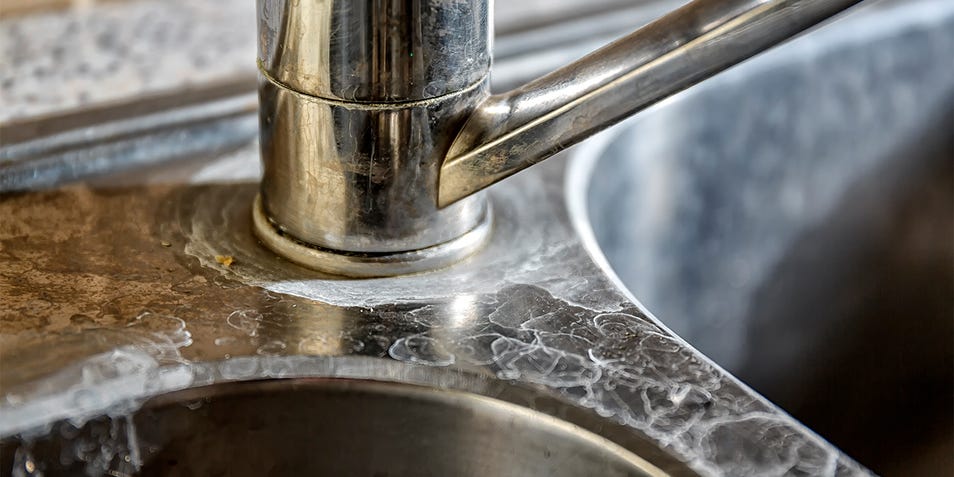Hard Water Vs. Soft Water

You may have heard the terms ‘hard water’ and ‘soft water’, but what exactly is the difference? Soft water is the natural state in which water falls, containing a low concentration of ions. Hard water is the product of soft water that has passed through ion-rich rocks on its journey through the freshwater cycle, and now contains more minerals. These minerals can form deposits, for example limescale, which need to be treated with limescale removers and prevention methods.
Over 70% of our planet’s surface is covered in water, however only 2.5% of this water is ‘fresh’. When the heat of the sun causes the water on the surface of the ocean to evaporate into clouds in the sky, it leaves the ‘salty’ chlorine and sodium ions behind. As a result, when it rains or snows the water is now ‘fresh’.
Half of the water which falls on the surface of the earth is absorbed by plants and vaporised back into the atmosphere and much of the remaining water becomes trapped in glaciers or icecaps. The water that is left over either runs off into rivers or lakes, mainly from seasonally melting snow, or filters through the soil and underlying rock formation to the underground water table. This water springs back up to form rivers and eventually becomes the water that runs through our pipes for use in our homes.
Whether your water is hard or soft is determined by the area you live in and the rock composition in the ground of that area. When water falls, it is naturally soft, but it becomes hard in some areas after travelling through the ground and picking up minerals – usually calcium and magnesium, but also other minerals such as chalk and limestone.
There are multiple water regions across the world, and within each country. In the UK, the north, west and far south-west are generally soft water regions because the ground here consists mainly of granite, which is too hard for the water to permeate, and therefore no minerals can be collected. Meanwhile the geology of central and south-eastern parts of the UK are generally chalk and limestone rock formations which allow water to pass through, collecting minerals and creating hard water regions.
Hard water can have a negative effect, especially when it comes to your household. The residue of minerals in hard water can create damage and blockages to your pipes and appliances, it can render soaps and detergents less effective and can cause a smelly washing machines. The presence of these minerals can even result in damage to your clothes and all of these factors can have economic drawbacks over time. However, there are things you can do to reduce water hardness in your home and in particular learning how to remove limescale.
